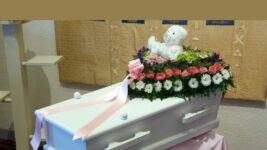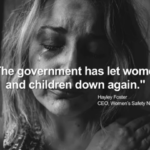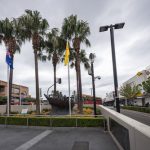Convicted Multiple Child Murderer to Have Case Reassessed

A woman convicted of killing her four children will have the case against her reassessed after the New South Wales Attorney-General recommended a fresh look at her case.
The story so far…
In 2003 Kathleen Folbigg was convicted of the murder of three of her children, who died in separate incidents between February 1989 and March 1999.
Patrick Allen (eight months of age), Sarah Kathleen ( ten months) and Laura Elizabeth (nineteen months).
She was also convicted of manslaughter in relation to the death of her fourth child, Caleb Gibson (aged just nineteen days).
At the time, Kathleen Folbigg was dubbed one of Australia’s most notorious ‘child killers’.
She has always maintained her innocence, vehemently asserting that each of her children died of natural causes.
She exhausted the appeals process, and is currently serving a 30-year prison term, with a 25-year non parole period.
Judicial inquiry 2019
A 2019 judicial inquiry into the case, which was ordered by NSW Attorney-General Mark Speakman and lasted several months, ultimately rejected fresh scientific and medical evidence that suggested the Folbigg baby girls may have died of natural causes.
A judicial inquiry is an inquiry that specifically relates to matters of the law. It is overseen by the Judicial Commission of New South Wales, an independent statutory corporation, which is part of the judicial arm of government. The Judicial Commission was established by the Judicial Officers Act 1986 (NSW).
Material published in 2020 motivated almost 100 prominent Australian scientists and medical experts to petition the Governor of New South Wales to pardon Kathleen Folbigg, finding that all of the children’s deaths could potentially be explained by genetics.
A new Public Inquiry
In response to that petition, Retired Chief Justice Thomas Bathurst has now been appointed to lead a public inquiry into the case, and he is the individual charged with the responsibility to decide what happens next.
At the end of the inquiry, Justice Bathhurst will prepare a report and if he is of the opinion that there is a reasonable doubt as to Ms Folbigg’s guilt, then the matter may be referred to the Court of Criminal Appeal for consideration.
The Attorney-General, Mark Speakmas has said that new evidence is sufficient grounds to open an inquiry. Speaking to media earlier this week he explained that although other avenues are available, including a pardon, a public inquiry ensures ‘open’ justice, as opposed to a decision made behind ‘closed doors.’
Mr Speakmans says the public inquiry is an appropriate forum not just because it is transparent, but because it also enables other key witnesses – such as Ms Folbigg’s husband and father of the children, Craig Folbigg to be represented in the inquiry if they choose to be.
A public inquiry is not a court of law and cannot determine criminal or civil guilt. However, the inquiry can make recommendations – in this case, that the case be referred to the court of Criminal Appeal or that Ms Folbigg receive a pardon. If a pardon is eventually granted, it does not quash the conviction against Ms Folbigg.
Having a retired judge lead the inquiry ensures the process is independent and contains the legal expertise required to determine whether or not the new evidence would have an impact on legal decisions with regard to Ms Folbigg’s case, and, if so, to determine the next appropriate course of action within the justice system.
New evidence
The new evidence is scientific research and information related to a genetic mutation CALM2, which was found in two of Ms Folbigg’s children. The CALM2 variant is known to cause sudden and fatal cardiac issues. This new evidence expands on evidence that was presented to the judicial inquiry in 2019.
The NSW Attorney General has made the decision that the new evidence meets the ‘necessary threshold’ for ‘some kind of intervention’, meaning that it meets the criteria sufficient for it to be explored and tested to determine whether or not it casts ‘questionable doubt’ on the evidence that originally convicted Kathleen Folbigg of the murder of her children.







